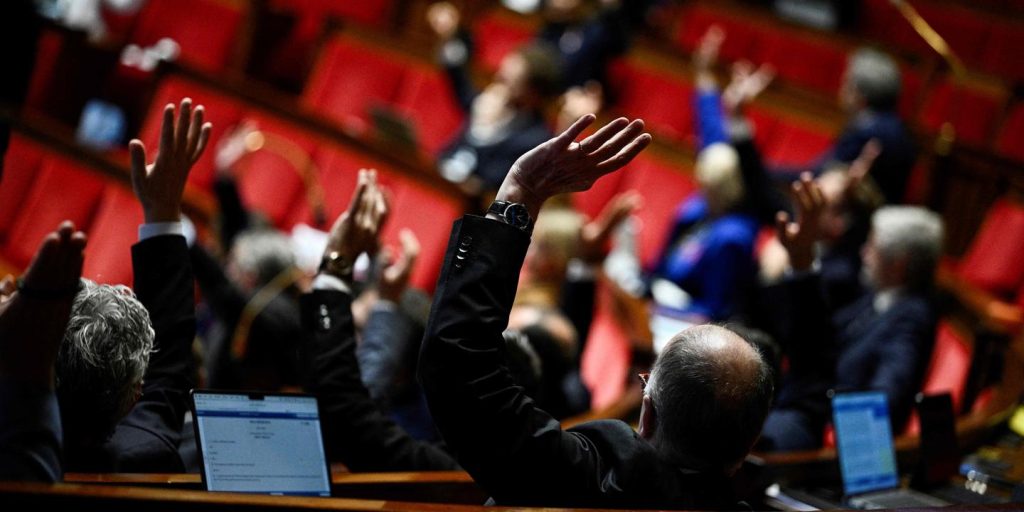The National Assembly has finally rejected the exceptional surtax on large companies proposed by the government in its 2025 budget, with MPs from the government camp and the National Rally voting against the article after the tax was significantly strengthened by an amendment from La France insoumise (LFI). The “exceptional contribution on the profits of large companies,” intended to contribute to the €60 billion in savings that the government hopes to achieve with its 2025 budget, is set to be in place for two years, generating €8 billion in 2025 and €4 billion in 2026. The contribution is expected to affect around 450 companies, with different surtax rates added to the corporate tax they must pay based on their annual revenue.
However, an amendment from the left raised the levy rates for the first year, against the government’s wishes, to 40% for companies with revenues ranging from €1 billion to less than €3 billion, and to 55% for those with revenues of €3 billion or more. This was a significant increase compared to the government’s initial proposal. Finance Minister Laurent Saint-Martin criticized the amendment, stating that it would extract an additional €13 billion from companies and could lead to them leaving the country. LFI President of the Finance Committee Eric Coquerel defended the amendment, arguing that it was irresponsible to ask the country’s workers to work an additional two years when large companies had accumulated tax-free profits.
Socialist Philippe Brun denounced what he called false claims about the impact of the amendment and rejected accusations that it was a “confiscatory” measure, emphasizing that it was only temporary for one year. On the other hand, Right-wing Republican (formerly The Republicans) MP Philippe Juvin criticized the government coalition, which includes MPs from various parties such as EPR, Horizons, MoDem, and DR, for voting to reject the article as a whole, describing it as an “act of demolition.” Ultimately, MPs from the National Rally and the UDR group led by Eric Ciotti also voted to remove the article from the bill, suggesting that the legislation may still undergo changes during the parliamentary process or through the use of Article 49.3.
The rejection of the surtax on large companies in the 2025 budget by the National Assembly reflects the ongoing debate over tax policy and government spending in France. The disagreement between various political parties highlights differing views on the role of businesses in contributing to government revenue and the distribution of financial burdens among different sectors of society. The amendment proposed by LFI and the subsequent rejection of the article by a coalition of parties demonstrate the complexity of reaching consensus on economic policies that balance the needs of businesses, workers, and the government’s fiscal objectives.
As the legislation moves forward for further review in the Senate or potential use of Article 49.3, there is a possibility for further modifications to be made to the surtax proposal for large companies. The concerns raised by government officials and opposition MPs regarding the potential consequences of the surtax, such as companies relocating or reduced investment, will likely continue to be debated. The decision to reject the surtax in its current form underscores the challenges of implementing tax policies that seek to generate revenue while maintaining economic competitiveness and social stability. The outcome of this legislative process will have implications for France’s fiscal policy and broader economic priorities in the coming years.















